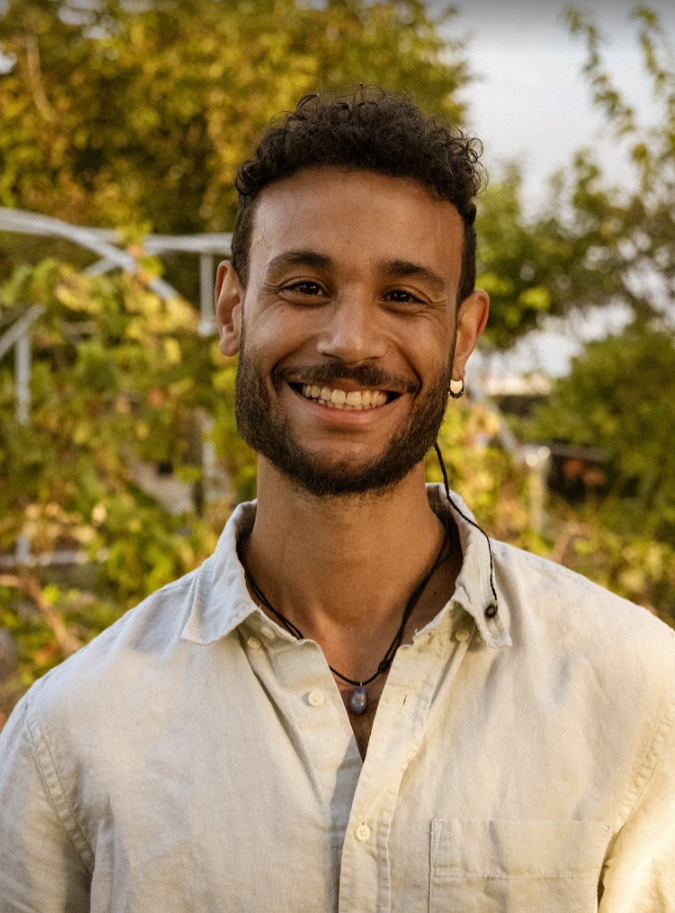Quim Zaldo - PhD in Environmental Science and Technology


“The climate as we know it will change forever”
I remember hearing this sentence at the age of eight on a television program...
The host explained that rainfall would become more torrential and less predictable, that droughts would become more frequent, that extreme weather would become more normalized and that we would have to get used to increasingly warmer and less available water.
I also remember the days and weeks after that message sank deeply into me.
I would spend the evenings staring at the tallest tree in my backyard, a eucalyptus over 15 meters tall, swaying intensely in the autumn winds.
While watching it, I would silently beg for it not to break or fall onto the house.
At the same time, I couldn’t help but think that if this was possible today, then in the future, if the climate changed the way they said on TV,
the tree might fall.
As a child, whenever I played with my cousins and had to choose a character to represent me, I always chose the druid;
There was something about mixing potions, working with the power of plants, and being surrounded by animals that called to me deeply.
So, it wasn’t hard for me to decide what I wanted to dedicate my life to: I wanted to understand the nature of life and what it needs to thrive in its full potential.
I wanted to invest my life’s energy into the energy of what we are part of and contribute to reversing the worst-case scenarios from that TV host.
I’ve been pursuing that mission through the path of science and research. It has led me to travel to different countries for conferences, to teach students in both schools and universities,
and also to train professionals in ecosystem management: farmers, livestock keepers, and field technicians.
Today, my everyday work focuses on restoration ecology.
For my doctoral thesis, I researched the positive effects of living in healthy ecosystems. During my first postdoctoral position, I coordinated two European Horizon projects (Delisoil and NutriBudget) focused on regenerative agriculture, nutrient cycling, and organic soil amendments.
Currently, from the Forest Science and Technology Centre of Catalonia, I take part in a strategic project by the Government of Catalonia to establish Resilient Landscapes across the region. I’m also a research member of a PRIMA project that promotes climate adaptation and mitigation strategies in Mediterranean Biosphere Reserves. And I lead my own research project on the characterisation of the soil microbiome: Microcosmos.
I also supervise two doctoral theses with two fantastic students who are truly committed to making this world a better place than the one we inherited.
Scientific publications
Book chapters
Basset, C., Zaldo-Aubanell, Q., 2025. The role of AI-enhanced microscopy in soil biodiversity assessment : Advancing soil security , connectivity and governance with implications for the European Directive on Soil Monitoring and Resilience , and global agendas. Soil Secur. 21, 100203. https://doi.org/10.1016/j.soisec.2025.100203
Cason O.R., Martí E., Maestre-Andrés S., Romagosa Casals F., Mas -Ponce T., Zaldo-Aubanell Q. (2025). Assessing Public Perceptions of Ecosystem Services in Peri-Urban Mediterranean Wetlands: A Case Study for a Restorative NBS in Catalonia, Spain. Urban Ecosystems. https://doi.org/10.1007/s11252-025-01716-4
Zaldo-Aubanell Q., Mas-Ponce A., Asbert G., Clota B., Isnard M., Proia L., Bach A., Sànchez S. (2024). Public perception vs ecological quality status: Examining the ecological restoration of the Congost River’s Environment. https://doi.org/10.1016/j.heliyon.2024.e34615
Bontempi A., Venturi P., Del Bene D., Scheidel A., Zaldo-Aubanell Q., Maneja R. (2023). Conflict and conservation: On the role of protected areas for environmental justice. Global Environmental Change 82:102740. https://doi.org/10.1016/j.gloenvcha.2023.102740
Zaldo-Aubanell Q., Serra I., Bach A., Knobel P., Campillo i López F., Belmonte J., Daunis-i-Estadella P., Maneja R. (2022). Environmental heterogeneity in human health studies. A compositional methodology for Land Use and Land cover data. Science of the Total Environment 806:150308. https://doi.org/10.1016/j.scitotenv.2021.150308
Zaldo-Aubanell Q., Campillo i López F., Bach A., Serra I., Olivet-Vila J., Saez M., Pino D., Maneja R. (2021). Community Risk Factors in the COVID-19 Incidence and Mortality in Catalonia (Spain). A Population-Based Study. International Journal of Environmental Research and Public Health 18(7):3768. https://doi.org/10.3390/ijerph18073768
Bach A., Maneja R., Zaldo-Aubanell Q., Romanillos T., Llusià J., Eustaquio A., Palacios O., Penuelas J. (2021). Human absorption of monoterpenes after a 2-h forest exposure: A field experiment in a Mediterranean holm oak forest. Journal of Pharmaceutical and Biomedical Analysis 200:114080. https://doi.org/10.1016/j.jpba.2021.114080
Zaldo-Aubanell Q., Serra I., Sardanyés J., Alsedà Ll., Maneja R. (2021). Reviewing the reliability of Land Use and Land Cover data in studies relating human health to the environment. Environmental Research 194:110578. https://doi.org/10.1016/j.envres.2020.110578
Zaldo-Aubanell Q., Bach A., (2025). La degradación ambiental, una creciente amenaza para la salud de las personas. In Cambio global: Crisis ecosocial y perspetivas futuras. Edicions de la Universitat de Barcelona. ISBN 978-84-1050-031-0.
Bach A., Zaldo-Aubanell Q. (2025). Exposome and planetary health. In Unveiling the exposome: Navigating environmental influences on health : New research tools to make the invisible visible. Institut d'Estudis Catalans. ISBN 978-84-9965-784-4.
